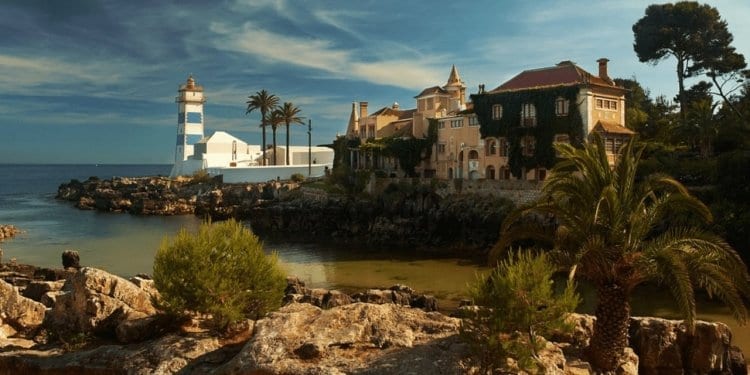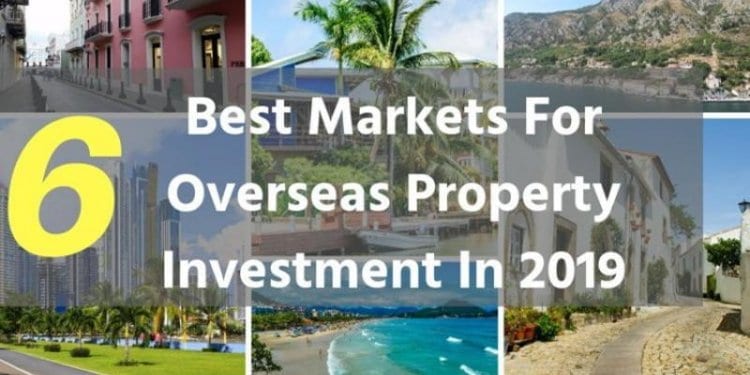Yesterday, Lief Simon shared his picks for top property investment markets in 2019.
Today, I’d like to share mine…
Brazil
Lief and I have made two investments in Brazil—one in agriculture in Fortaleza (which is on track to begin paying out in 2019)… and, this year, in a pre-construction coastal townhouse in the same Brazilian state.
Both are yield plays. The projected rental returns for the townhouse are in the range of 18%.
The Brazilian real remains historically weak against the U.S. dollar, meaning Brazil remains especially attractive to dollar buyers.
Fortaleza is my particular market of focus because it’s an emerging international tourist destination that is significantly undervalued.
One concern has been access. Historically, to get from the United States to this region of Brazil, you had to fly hours south and catch a connecting flight back north. Brazil is a big country.
Now many new direct flights make the Fortaleza airport much more easily and much less painfully reached from both North America and Europe.
Thanks in part to this improved access, the area is receiving growing numbers of foreign tourists. My French chiropractor mentioned during my most recent visit that he just returned from a kitesurfing vacation on this Brazilian coast.
Still, though, in-country tourists make up much of this market, and the townhouse development I’ve reported on (and invested in) this year targets local weekend visitors.
That coastal community has sold out. However, the developer is looking for more land so he can build more townhouses. The demand is there. Put your name on the list for more information when the next phase is launched here.
Belize
Last year I added two Belize investments to my portfolio… one in the Cayo District, in the country’s rain forest interior, and the second on the Caribbean coast of Ambergris Caye.
In Cayo, a developer friend with an extensive track record is creating a tiny home neighborhood in his self-sufficient community. These efficient little cottages work both for full-time living and as rental properties. I’ll be making mine available for rental as soon as it’s built.
Comfortable rentals, either short- or long-term, are not easy to find in Cayo, and I believe these tiny cottages will be in high demand.
And the cost of entry is appealing, at less than US$100,000.
Using a conservative 50% occupancy rate, the yields for this hit my target of 5% to 8% net per year before taxes. However, this purchase also plays into my long-term lifestyle plan. Lief and I like the idea of being able to spend a couple of weeks in Belize every year… one in our cute little self-sufficient cottage in Cayo…
And the other in our five-star beachfront hotel unit on the sandy coast of Ambergris Caye. In fact, the hotel unit we’ve invested in comes with four weeks of personal use, meaning our kids could spend a week or two here each year, as well.
The hotel unit isn’t a time-share or fractional ownership. It’s full ownership of a unit that will be part of a brand-name property. Net rental return projections for this investment hit double digits once the hotel is fully operating.
Longtime readers know that I have been recommending Belize for property investment for more than 30 years. Lief and I have made good money here, as have thousands of our readers over the decades… and we see more profit potential in 2019 and beyond.
Word continues to spread on all this country has to offer, and tourism-related industries are enjoying the growth that reality suggests.
The Hotels and Restaurants tourism subsector grew by 17.2% through the third quarter of 2018, thanks to a 15.3% increase in overnight visitors for the period. As the number of direct flights to Belize increased, the number of visitors from the United States rose by 16.2%, while tourist numbers from Europe were up 22.7% and the number of Canadian visitors increased by 56.7%.
Cruise traffic, likewise, expanded substantially. The number of cruise visitors to the country through the third quarter of this year increased 55.5%.
I’m feeling good about my two 2018 Belize buys.
Panama
I’ve been bullish on Panama for property investment for almost 20 years. This country’s real estate markets have seen ups and downs over that time, of course, but mostly ups.
The 2008/2009 global real estate crash had a much less dramatic effect in Panama than in other countries in the region for two reasons. First, Panama enjoys a broader demand base. Second, there’s little leverage in play.
Prices in Panama City today are multiples of prices a decade-and-a-half ago when Lief and I made our first investment here. However, comparing apples to apples on a global scale, they remain a good buy on a per-square-meter basis… and an investment here can continue to generate a strong and reliable rental return.
That said, this is a dramatically different market from the one I first invested in 15 years ago. Back then, you could have bought almost anything and realized a profit. In today’s boomtown Panama City, hustlers abound. You need to know where to look and what specifically to buy.
This year I’ve identified what I believe is the most interesting and least serviced niche market in Panama’s capital. Frankly, I’ve been reluctant to report on this opportunity too broadly; I don’t want to give anything away to other Panama City developers.
The developer we’re working with for this still very under-the-radar product plans a series of projects targeting this niche. The purchase structure they’ve put together offers investors excellent potential returns and a simple exit strategy.
Frankly, the combination of market niche, targeted product, and creative purchase terms is almost genius.
You can find out more about this unique opportunity here.
Portugal

Lief and I made our first investment in Portugal in the summer of 2015. Looking back now, we can call this as the market bottom in the wake of the 2008 global property crisis.
You can still find properties on the books of banks and financial institutions in this country, but those kinds of deals are mostly history. Property prices in the hot spots of Lisbon now resemble prices for comparable properties in Barcelona and Rome.
You can still find good buys in Lisbon in areas that haven’t yet been fully re-gentrified, but the best deals today are renovation projects.
This is increasingly true across the Algarve, as well, where renovation projects are the best buys. A property ready for rental today likely comes with a price tag that translates to a net rental yield of maybe 5% or maybe not even. While prices have risen, rental rates have not kept pace, meaning yields have fallen from the 8% to 10% net you could have expected two or three years ago if you bought right.
The Portugal market requires more work today than it did when Lief and I bought, but I think it’s worth it. The numbers of both tourists and foreign retirees choosing to spend time in this country are rising and will continue to do so. Some Portuguese aren’t happy about this reality, as it’s pricing the locals out of some markets. However, overall, this is a stable country with a strong economy.
Portugal’s coast isn’t nearly as overbuilt as the coast of Spain and won’t be, thanks to serious restrictions on oceanfront development. No new construction is allowed within 500 meters of the coast. A friend owns a house within that zone and couldn’t even add a pool house for her already existing pool. Construction up to 2 kms from the coast comes with height restrictions, meaning no towns like Benidorm, Spain, with high-rises at or even near the beach.
This means that existing beach properties will continually become more valuable.
Note that it’s possible to get a local mortgage as a nonresident for the purchase of property in this country.
Montenegro
Lief and I have been watching the real estate market in Montenegro develop since 2005, when we made an investment in Croatia. We made the trip across the border south of Dubrovnik to Kotor more for vacation than property scouting, but, as happens for us often, once there, we were inspired to look at property for sale.
Kotor is a fairy-tale medieval town on a sparkling bay. Seeing its historic stone structures, I couldn’t help but wonder what they cost to own. My research found that prices were lower than in Croatia, but the market was moving more quickly.
Values in Kotor moved up fast… and then took a big hit following the global real estate collapse of 2008. Two years later, Lief and I moved from Europe to Panama, and charming Kotor fell off our radar.
Now that Montenegro is on a path for EU membership and gaining growing stature on the world stage, Kotor is back in my sights. When I was paying attention back in 2005, the market was driven mostly by Russian and Serbian tourists. Today, Westerners are increasingly on the scene.
The difficulty is that Montenegro is a small country and Kotor is a tiny city. Not a lot of inventory.
In addition to Kotor, I’m looking at Budva, the country’s main coastal resort town.
Puerto Rico
Puerto Rico isn’t technically offshore for an American (as it’s an unincorporated U.S. territory), but it’s on my list for 2019 thanks to the 2017 Tax Cuts and Jobs Act.
The tax incentives were created to spur investment in U.S. Opportunity Zones in general and apply beyond Puerto Rico. However, in the case of Puerto Rico, the entire island is an Opportunity Zone… meaning you can invest anywhere and qualify for the tax deferrals created by the new tax law.
You can’t buy just any property and benefit. You must make an investment in new construction or a renovation, meaning this isn’t an easy or a straightforward opportunity for an individual investor.
However, a development group we’ve worked with for years has begun putting together projects on the island that qualify for the new tax benefits. You can learn more about these turnkey investment options here.
Tax incentives aside, Puerto Rico is a good rental market. Tourism has already begun to rebound, while other industries are still recovering. And, if your investment qualifies under the Opportunity Zone law, your returns benefit from the tax deferrals now available.
Lief and I are trying to fit a trip to Puerto Rico into our travel schedule sometime during the first half of 2019. Our Private Network members will receive an invitation to join us.
Here’s to a 2019 filled with global property profits.
Kathleen Peddicord










